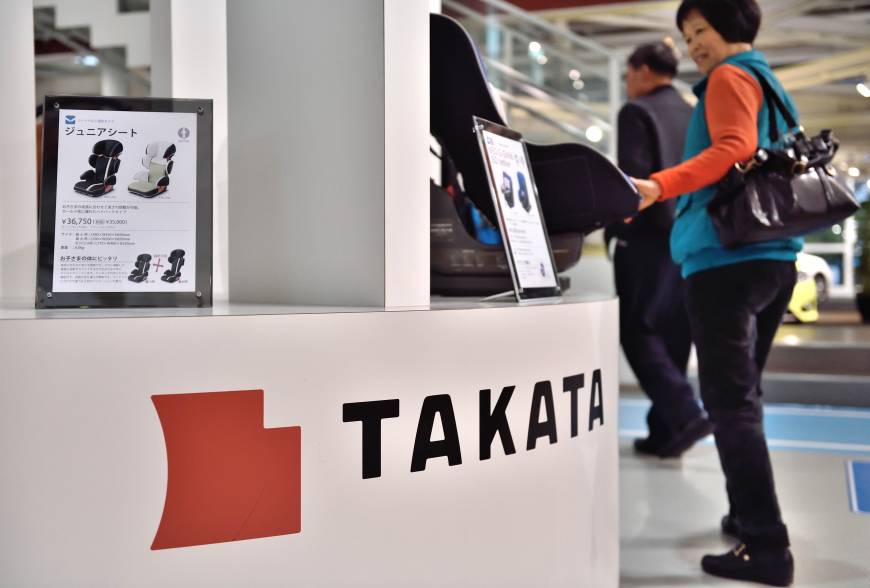Japanese auto parts maker Takata Corp offered on Tuesday condolences to victims of its faulty air bags, stopping short of making a full apology.
“We offer our condolences to the those who lost their lives and to those who suffered injuries,” Shigehisa Takada, chairman and CEO of Takata, said at the company’s last annual shareholder meeting as a listed company.
The meeting came a day after Takata, facing tens of billions of dollars in costs and liabilities following almost a decade of recalls and lawsuits, said it had filed for bankruptcy protection in Japan and the United States. The defective air bags have been linked to at least 16 deaths and 180 injuries around the world.
As part of the arrangements it will be largely acquired for $1.6 billion by the Chinese-owned US-based Key Safety Systems.
The grandson of the company’s founder, Takada was criticized in the Japanese media for failing to address victims at a press conference announcing the bankruptcy on Monday. It was his first media appearance in more than a year and a half.
At Tuesday’s meeting, he joined other executives in making a deep bow of contrition for the lives lost and shattered by the company’s defective air-bag inflators. Most victims were in the United States.
“I was told that I shouldn’t cause any bias and that I should leave it to others,” Takada said, responding to the criticism. “I too felt shame about this.”
Takada “was full of excuses,” said one female investor in her 40s from Tokyo.
“Constantly blaming the media and those around him, it’s not surprising things ended up like this,” she said.
The ammonium nitrate compound used in the air bags was found to become volatile with age and prolonged exposure to heat, causing the devices to explode with too much force and spray shrapnel into vehicle compartments.
Takata shares were untraded with a glut of sell orders on Tuesday. The company is due to be delisted from the Tokyo Stock Exchange on July 27.
It could take years to get the dangerous air bags off the road in the US and around the world.
Crushed by lawsuits, fines and recall costs, the Japanese auto parts supplier filed for bankruptcy in Tokyo and Delaware and will sell most of its assets for $1.6 billion to a rival company. A small part of Takata will continue to manufacture replacements for the faulty air bag inflators.
The problem, though, is that 100 million of the Takata inflators worldwide have been recalled, 69 million in the US alone in the biggest automotive recall in American history. It will take the industry years to produce that many replacements.
In the meantime, millions of car owners are forced to nervously wait for someone to fix the problem. Many owners have been put on waiting lists by their dealers until the parts arrive.
“The big problem is the air bags are still out there. They’re like bombs waiting to explode,” said Billie-Marie Morrison, the lawyer for a young Las Vegas woman grievously injured by an exploding air bag in March.
In fact, the last batch of US repairs is not scheduled to begin until September 2020, according to the National Highway Traffic Safety Administration, which is overseeing the recall.
“I don’t think I have any options,” lamented Marv Muller, the owner of a 2009 Subaru Impreza. “It’s really bad.”
Muller, a recruiter in New York, received a letter in January saying his car needed to have its passenger air bag repaired. He contacted a Subaru dealer, only to be told it didn’t have the parts.
He was put on a waiting list and told he would have his car repaired in June. It hasn’t happened yet.
In the US, more than 16 million inflators have been repaired so far, or 38 percent of the total. In Japan, 70 percent have been replaced, according to Takata. That’s partly because Japan won’t renew vehicle registrations unless recalls have been completed.
Because of the type of chemical propellant used by Takata, the defective air bags can inflate with too much force and spew deadly shrapnel at drivers and passengers. Takata sold the inflators to 19 automakers, including Toyota, Subaru, BMW, Honda, Ford and Nissan.
